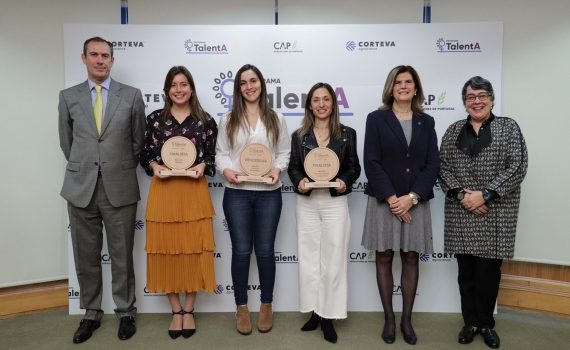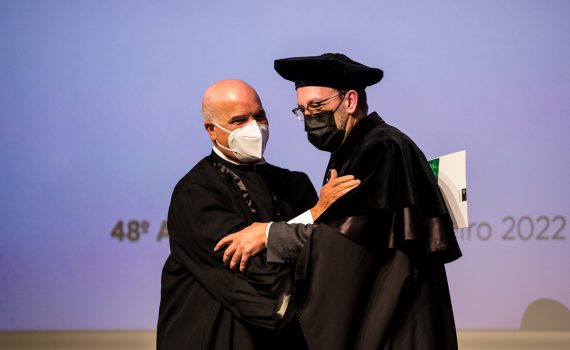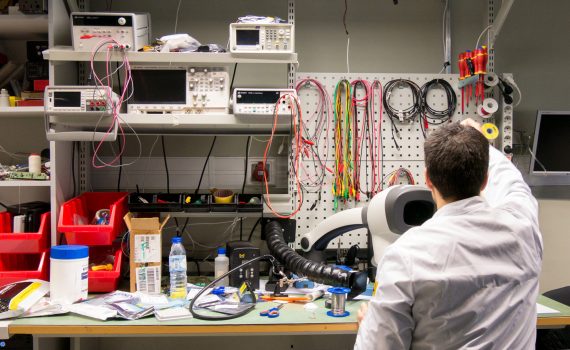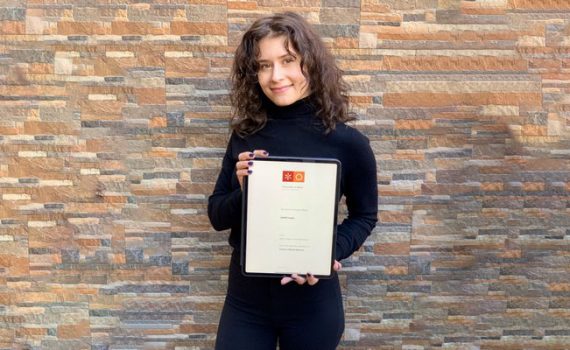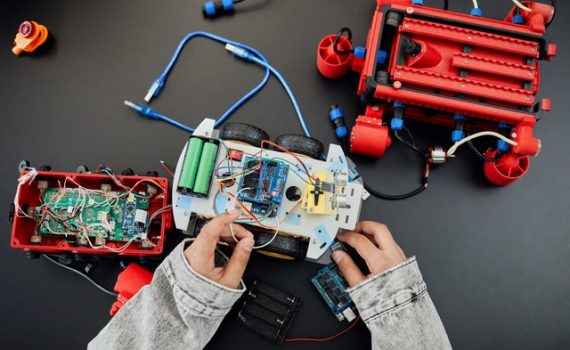Book traces history and challenges of information systems in Portugal The Portuguese Association for Information Systems (APSI), based at the University of Minho, has launched the book “Information Systems – Diagnosis and Perspectives”, with 50 authors summarizing 30 years of teaching and research in this area in Portugal and pointing […]
Innovation
To celebrate International Women’s Day and highlight their importance in the future of the rural environment, Corteva Agriscience and the Confederation of Farmers of Portugal (CAP) announced the three winners of the 2nd Edition of the TalentA Program, in a ceremony that took place on March 08 in the CAP […]
The University of Minho celebrated its 48th Anniversary last February 17th, in a Ceremony that took place, for the first time, at Teatro Jordão, in Guimarães. At the ceremony, the rector of UMinho, Rui Vieira de Castro, the president of the Academic Association of UMinho, Duarte Lopes, the president of […]
Project “Railway 4.0” aims to develop innovative solutions for the railway market The Institute for Sustainability and Innovation in Structural Engineering (ISISE) of the School of Engineering is part of the project “Railway 4.0”, which aims to develop different components, tools and systems, to be tested in real vehicles and […]
Paulo Cortez, researcher at the ALGORITMI Center is in 19th place nationally in the area of Computer Science. Paulo Lourenço and Daniel Oliveira, researchers at ISISE, are in 2nd and 27th place nationally, respectively, in the area of Engineering and Technology. Paulo Flores, Metrics’ researcher, is in 6th place in […]
The month of February was marked by the visit of several committees of companies operating in sectors associated with Engineering, which came to visit and learn about some of the Research Centres of the School of Engineering, its laboratories and resources. The most recent visit was from the Portuguese group […]
Leonor Ribeiro, student of the Master in Information Systems, won the first prize “ERCIS Master Thesis Award 2021”, awarded annually by the European Research Center for Information Systems (ERCIS). For the jury, this “thesis represents a strong and broad scientific body of work. It is worth noting the breadth of […]
The High-Assurance Software Laboratory (HASLab) of the School of Engineering is the coordinator of the SpecRep (Constraint-based Specification Repair) project, which aims to promote the correct formal specification of software components necessary for the development of reliable software. This type of software is increasingly used in critical systems, that is, […]
The High-Assurance Software Laboratory (HASLab) of the School of Engineering will develop solutions that will allow Wide Area Networks (WAN) communications networks to adapt, in real time, to the availability and source of electricity, giving priority to renewable sources. The FLEXCOMM project (Towards energy-aware communications: connecting the power grid and […]
New tool reduces the cost of robots and increases their reliability and safety Whether to clean our homes, manufacture products or even disable bombs, robotics is increasingly used, as it performs tasks faster and more efficiently. Focusing on the development of safer high-quality robotic applications, with lower costs, the Institute […]
The Deucalion supercomputer, to be installed in Minho Advanced Computing Centre (MACC), will thus operate in the most sustainable way possible The project’s main goal is to develop an innovative energy management solution that allows the operation of a supercomputer more sustainable, which analyzes the degree of emissions of electricity […]
The High-Assurance Software Laboratory (HASLab), a research centre of the School of Engineering, coordinates the project “Quantitative methods for cyber-physical programming: reasoning precisely about inaccuracies in cyber-physical behaviour”, which aims to develop mathematical methods for modelling and analysing inaccuracies in cyber-physical software. Cyber-physical systems are a critical part of Industry […]

